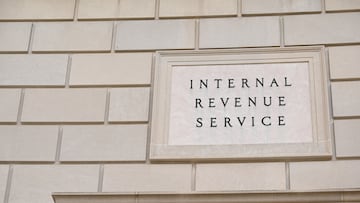Tips to avoid an IRS tax audit
Here are a few to avoid getting audited by the IRS...

Last year, the Internal Revenue Service (IRS) set a target of increasing its revenue by $100 billion over the next decade.
The plan is to achieve this by increasing the level of audits to ensure that taxpayers are not hiding their income from the federal government. While this has understandably caused concern for those on lower incomes, the head of the IRS has reassured Americans that the audits will mainly focus on high-income earners and corporations.
The IRS’ commissioner, Danny Werfel, has made it clear that the audits will not target average taxpayers, those who receive W-2s or Social Security payments, or small business owners. He stated that there will be no new wave of IRS audits for these groups, and they should not worry about their finances being scrutinized. Instead, the focus will be on building capacity for higher-income individuals and corporations over the coming years.
"But the second most effective use [of IRS time] is auditing households at the opposite end of the scale: low-income people who claim the earned-income tax credit, which yields nearly $3,000 per hour." https://t.co/jwoL3hH4Ll pic.twitter.com/zH1fiXLWa7
— Scott Lincicome (@scottlincicome) April 7, 2023
What is an audit?
An IRS audit is a review of an individual’s or business’s tax return to ensure that the reported income, deductions, and credits are correct and comply with tax regulations. There are various reasons why an audit may be conducted, such as random selection, inconsistencies or mistakes in the tax return, or certain indicators that raise suspicion.
Who will be targeted?
The focus will be on taxpayers earning more than $400,000 a year, which includes those in the highest tax brackets as well as large corporations.
To address declining audit rates for the highest-income #taxpayers, in 2020, @USTreasury directed #IRS to audit at least 8% of these individuals.
— U.S. GAO (@USGAO) February 12, 2024
IRS has increased the number of these audits, but we found more ways to improve these efforts. Learn more: https://t.co/0idNeUtBcj pic.twitter.com/EcsqSqdlRF
In August 2022, the Inflation Reduction Act was signed to provide a significant boost to the IRS. The bill has allocated an additional $80 billion to support the tax agency, out of which $45.6 billion will be used for tax enforcement. Werfel was summoned to appear before a Senate committee to explain the plans and to ensure that low-income Americans would not be unfairly targeted.
How to avoid getting audited
While the risk of audit by the IRS for those with a W-2 is low, there are still some tips to follow to avoid raining questions with the IRS.
The first is not to try to deduct expenses that the IRS prohibits. Often, taxpayers will try and deduct donations to charities that are not registered as 501(c)3 or political contributions. Be sure to verify that the expense is allowed under IRS rules to reduce the risk of your tax return being flagged and raising questions about your tax history.
Related stories
You might interested in: 8 things that are generally believed to be tax deductible but aren’t
Next, make sure to pay your taxes on time, and if you cannot do so, be sure to submit a request for an extension. Taking many years to file a tax return can raise suspicions that you are not paying your fair share of taxes and could lead the agency to investigate further. In the case you are audited, it is always better to have your tax records on hand. Now that these documents can be stored digitally, there is no need to get rid of them after a certain period of time. However, tax professionals recommend saving your documents for at least three years.